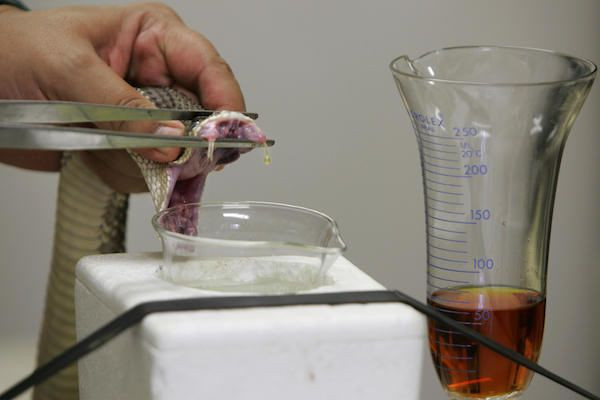A Snakebite Crisis? What Global Health Organizations Are Doing To Fight It

An estimated 5.4 million people are bitten by snakes each year, which results in 81,000 to 138,000 people dying from the venom and permanent disabilities for another 400,000 people.
Global health organizations are starting to take notice of this epidemic. The World Health Organization (WHO)on Thursday unveiled a strategy: "Snakebite Envenoming: A Strategy For Prevention and Control" on how to better manage this global health crisis.
"Snakebite envenoming is a neglected tropical disease (NTD) that is responsible for enormous suffering, disability and death on every continent," the report said. The WHO added that 7,400 people every day are bitten by snakes and that between 220 and 380 men, women and children die each day as a result.
The organization hopes to better equip local communities with training and snakebite antivenom, with the goal of halving the number of global deaths each year due to snakebites. The WHO will invest $136 million into the initiative.
Doctors without Borders (MSF), another global health organization, welcomed the WHO's initiative to address the crisis. "We are cautiously optimistic that the WHO's snakebite strategy could be a turning point in tackling this disease and governments, donor and other stakeholders must not squander this, but instead provide concrete political and financial support to ensure its success," Julien Potet, a policy advisor to Doctors without Borders said.
Snakebites are a major issue, particularly in Asia and Africa. Between 57,000 and 100,000 die every year in Asia while 20,000 to 32,000 people die every year in the Middle East and Africa. The Saw-scaled viper, which lives in the Middle East and India, is responsible for more deaths than any other snake.
© Copyright IBTimes 2025. All rights reserved.





















